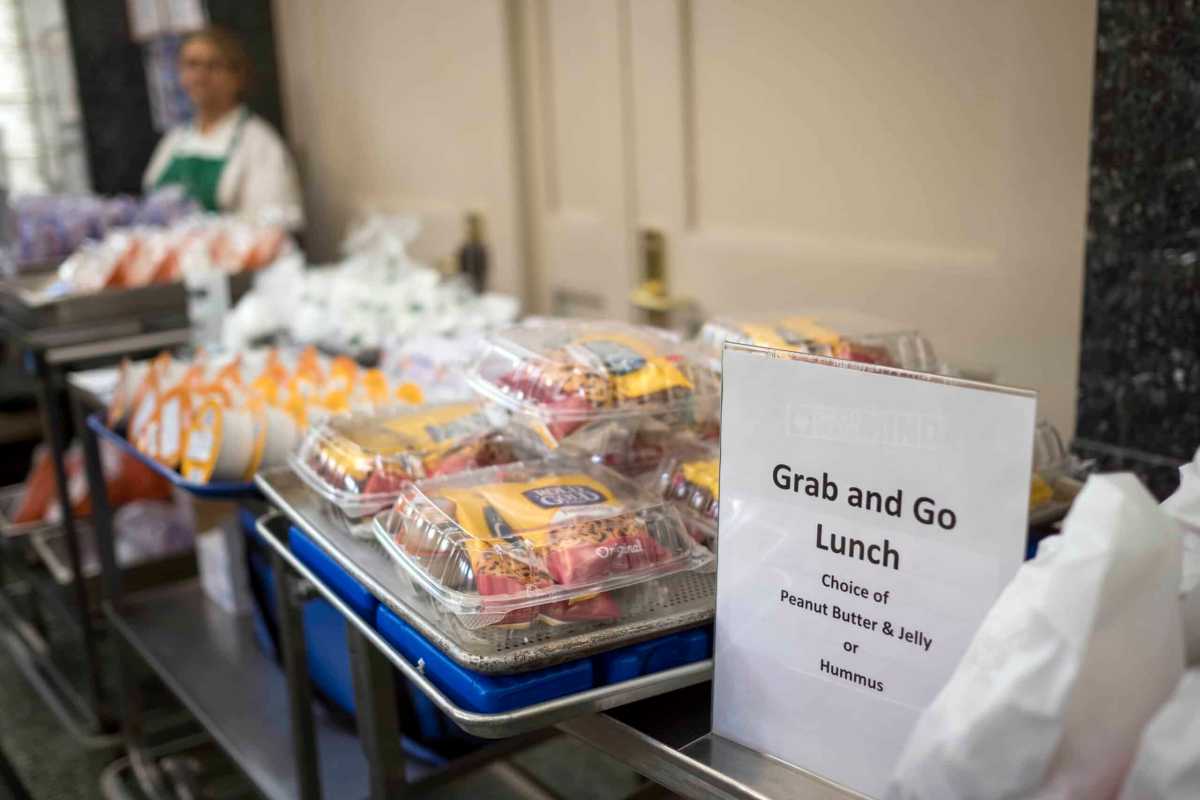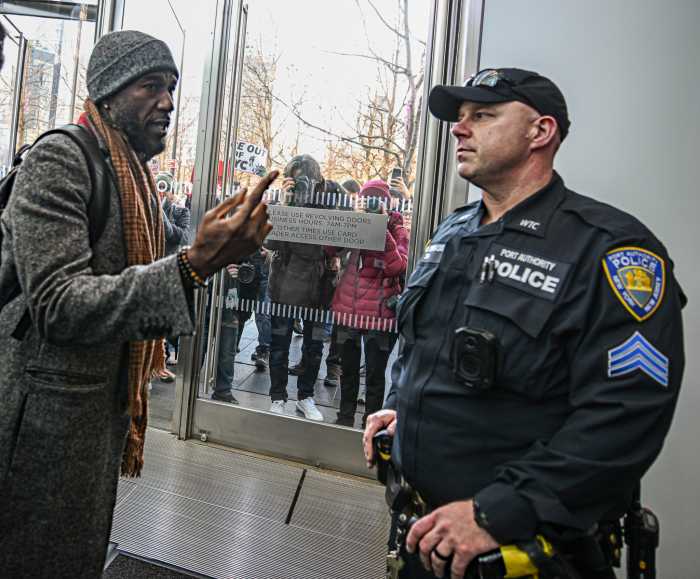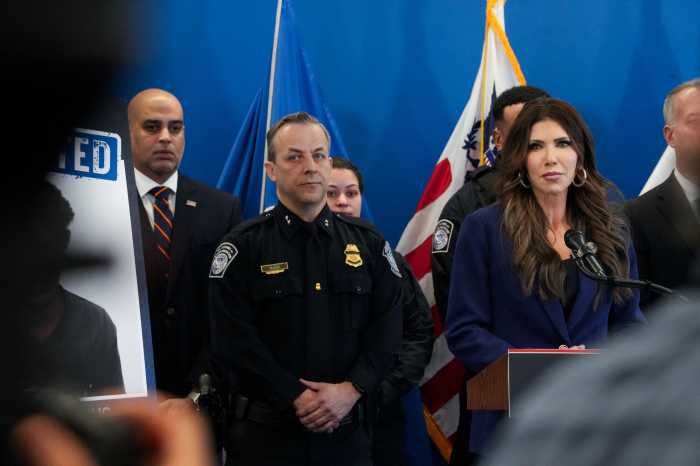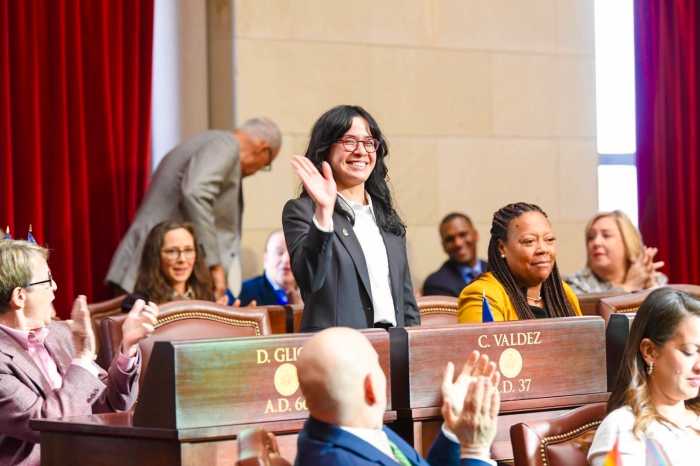U.S. Sen. Kirsten Gillibrand (D-New York) recognized the importance of food for thought by pushing for a bill on Tuesday that would provide more free meals, including dinner, to public school students across the country.
Dubbed the Universal School Meals Program Act, the bill, should it become law, would provide free breakfast, lunch, dinner, and a snack to schoolchildren throughout the country, regardless of their family income, Gillibrand said during a press conference at M400 High School for Environmental Studies in Midtown.
Students in NYC public schools already receive free breakfast and lunch. However, the bill would expand this to include an evening meal when students participate in after-school activities or stay later in school. The bill would also include access to free meals over the summer for all kids and eliminate school meal debt.
The bill seems to follow the playbook of Minnesota Gov. Tim Walz, the Democratic nominee for vice president. In 2023, he signed into law a bill giving all Minnesota public school students, regardless of household income, free breakfast and lunch. According to NBC News, seven other states have enacted a similar free school meal law.
During the COVID-19 pandemic, the federal government offered free school meals, but that program has since been discontinued.
‘Positive outcomes’ from free school meals
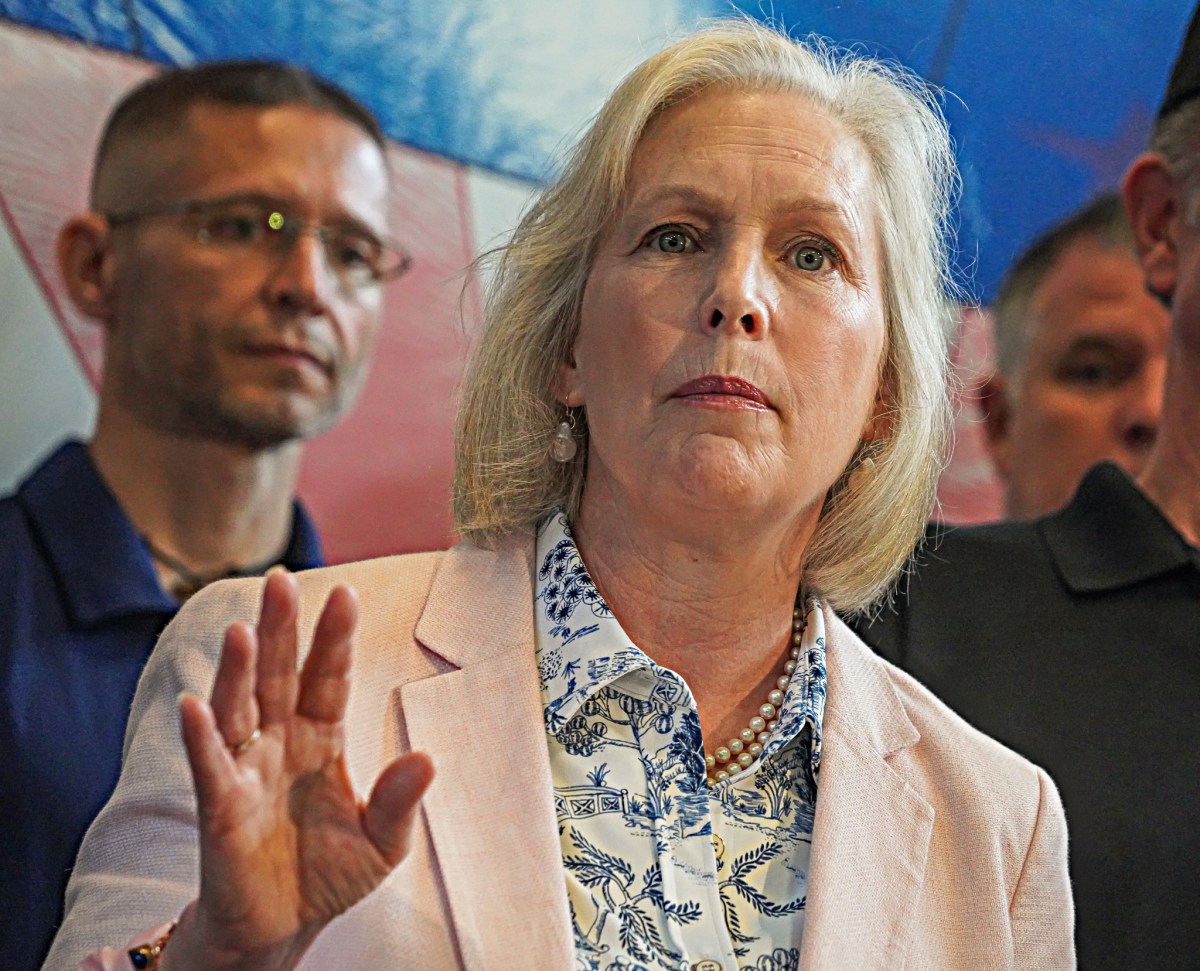
Free school meals are associated with various positive outcomes, according to Gillibrand. Some of those outcomes include improved attendance rates and school performance, fewer behavioral incidents, lower suspension rates, better health outcomes and reduced financial stress for students and families.
“In the richest country on earth, it is unacceptable that millions of kids go hungry each day,” the senator said. “The Universal School Meals Program Act would provide funding for free breakfast, lunch, dinner and a snack for students who need them, and slash burdensome red tape for school administrators.”
According to No Kid Hungry New York, an organization that aims to end childhood hunger, 85% of New Yorkers reported that the cost of food was rising faster than their income.
States that currently offer universal school meal programs include California, Colorado, Maine, Massachusetts, Michigan, Minnesota, New Mexico and Vermont.

Gillibrand added that the Universal School Meals Program Act would help keep kids in school and “fight the stigma” that sometimes surrounds meal programs.
“This bill would make our families and communities healthier and stronger, keep kids in school, and work to fight the stigma too often associated with meal programs,” she said. “I’m proud that New York City is leading the charge in providing universal school meals, and I look forward to passing this critical legislation so every child in the United States has the food they need to succeed.”
Joel Berg, CEO of Hunger Free America, a nationwide nonprofit based in New York, underscored Gillibrand’s remarks about the benefits of universal school meals.
“Universal school meals are an idea whose time has come,” he said. “Not only do universal school meals slash child hunger, they also boost educational performance. After all, to be schooled, you must be fueled. To be well-read, you must be well-fed.”
While school meal prices vary around the country, based on the individual district, the School Nutrition Association reports that the average breakfast cost per elementary school student is $1.75, and the average lunch cost is $2.83. For high schoolers, the average breakfast and lunch costs are $1.80 and $3.05, respectively.
Read More: https://www.amny.com/politics/



